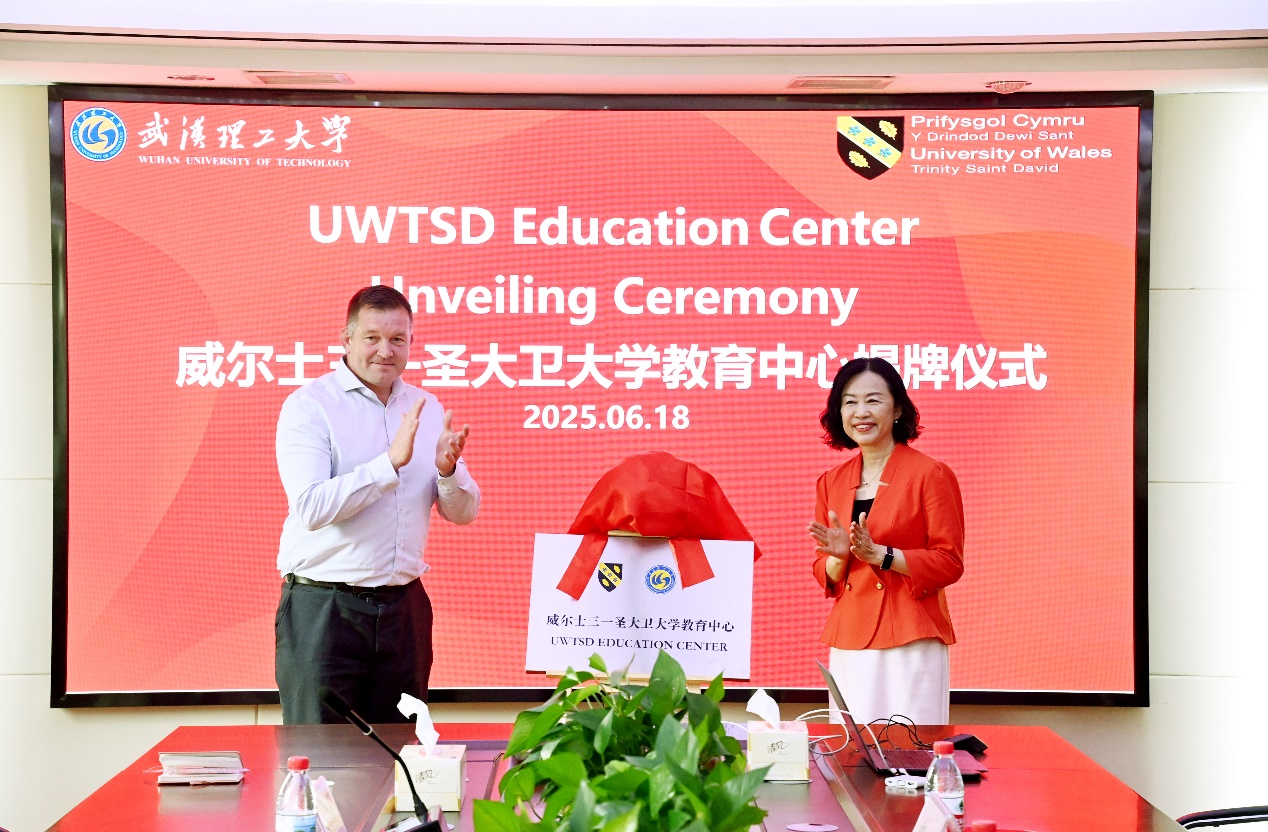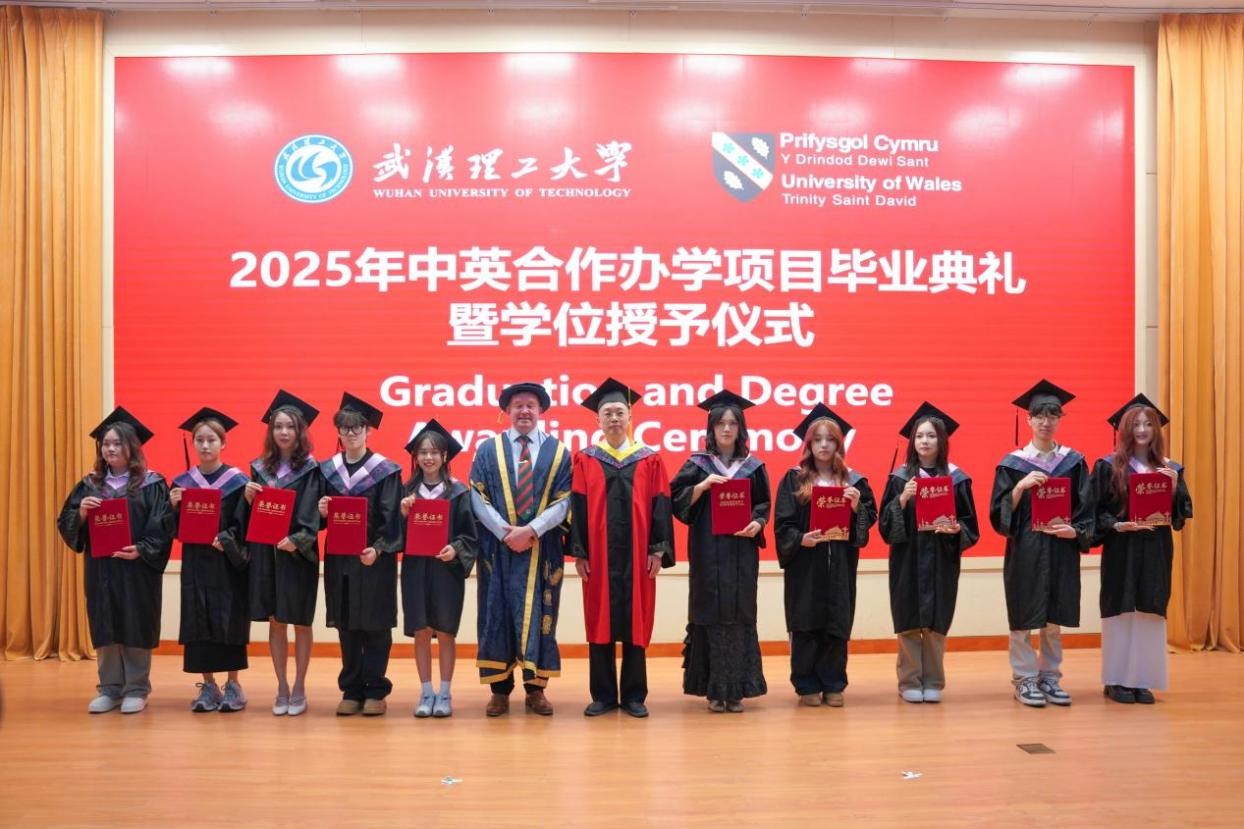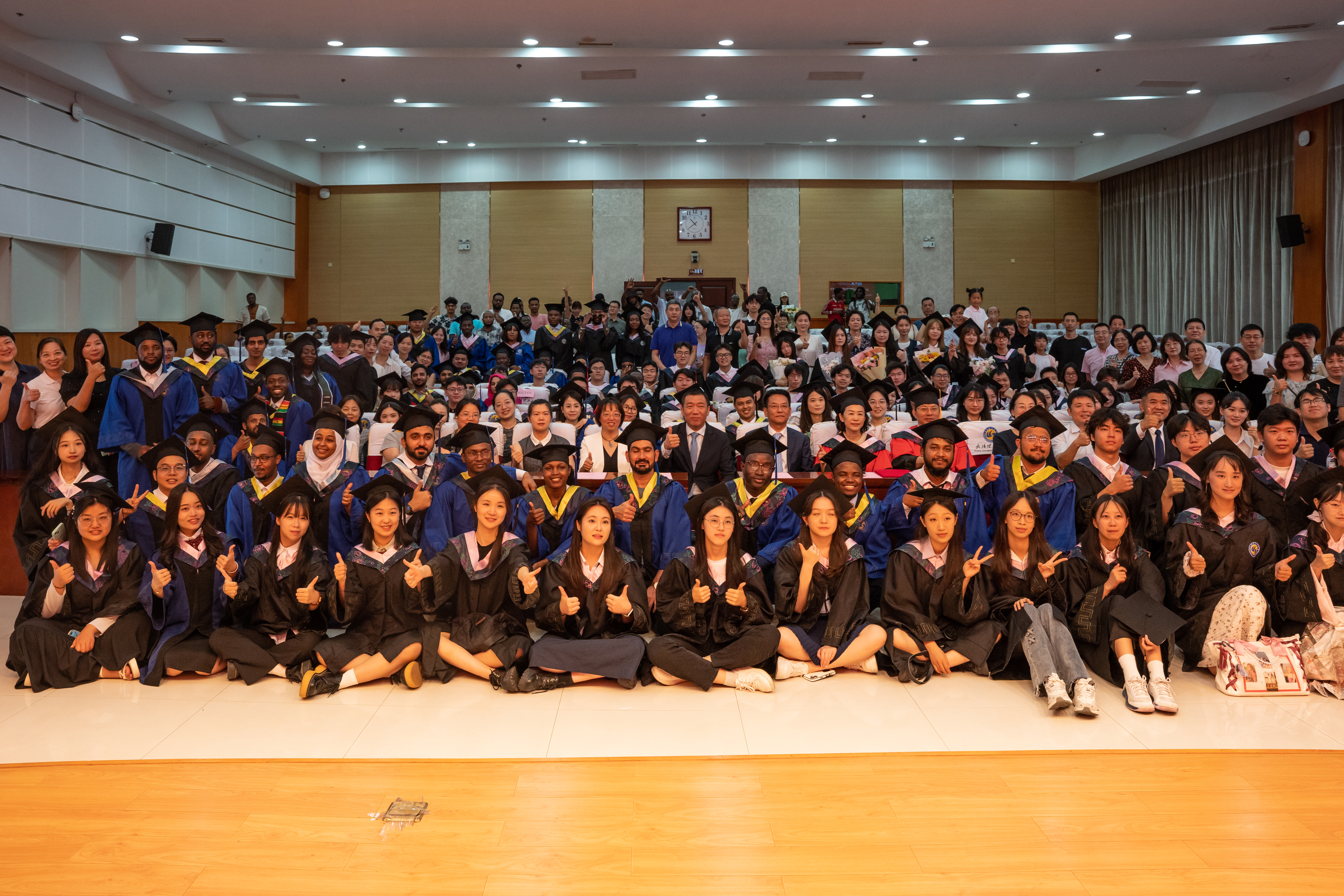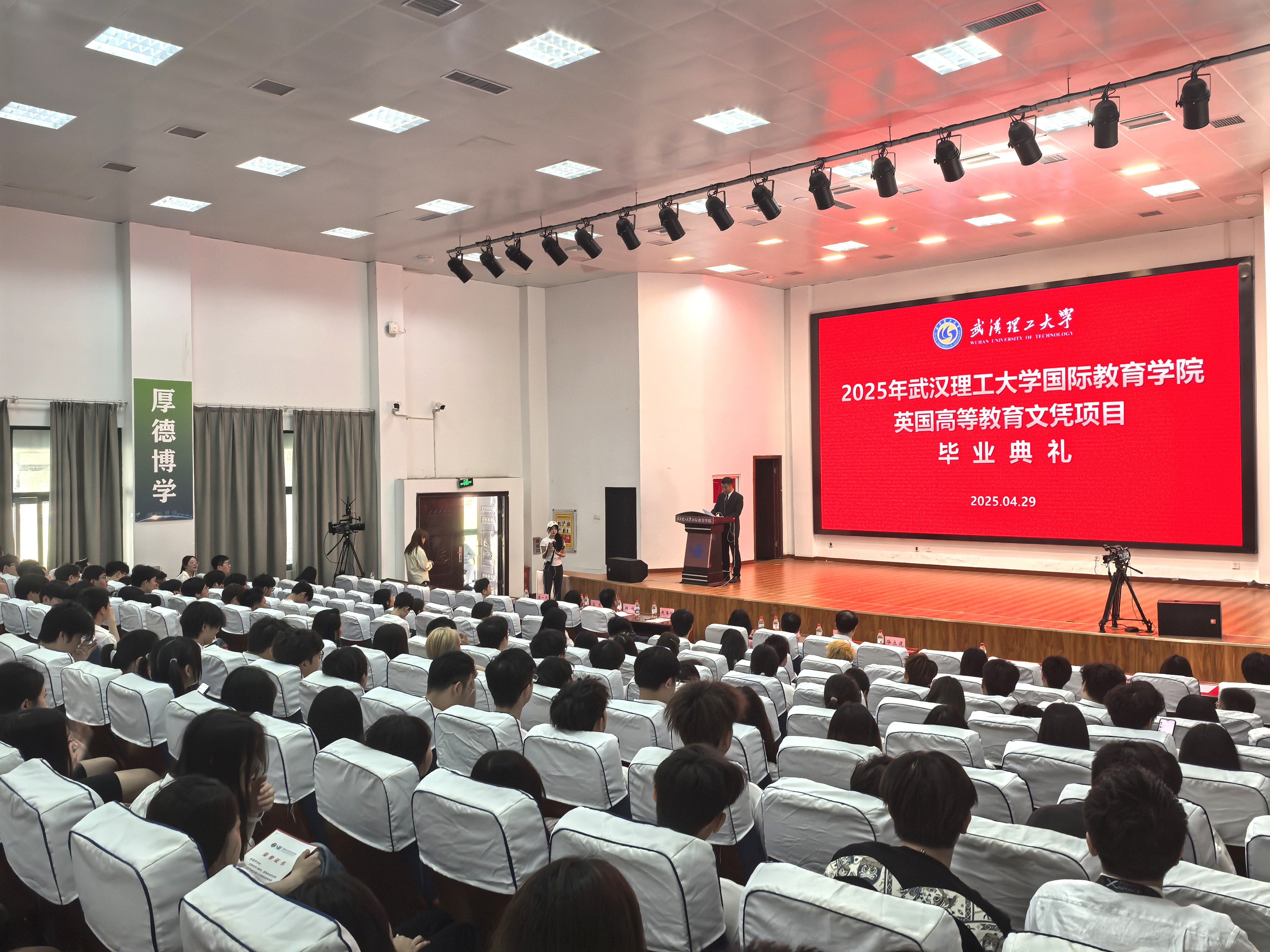威廉希尔williamhill新闻
more>>- 【来华留学】2025届优秀国际毕业生颁奖典礼暨毕业生座谈会成功举办2025-07-04
- 【公司动态】公司赴海南招生宣传活动圆满落幕2025-07-04
- 【合作交流】武汉理工——洛林大学孔子公司国际员工开启文化交流之旅2025-07-04
- 【来华留学】深化融合赋能 共筑安全防线——全市职工安全管理服务工作会在我...2025-06-26
- 【公司动态】威廉希尔williamhill2025年中英合作办学项目毕业典礼暨学位授予仪式圆满举行2025-06-20
- 【来华留学】公司国际员工代表参加感知中国——2025世界交通运输大会国际员工学...2025-06-19
- 【公司动态】威尔士三一圣大卫大学首席行政官一行访问公司2025-06-19
教学动态
more>>- 【教学办】2025年“暑期卓越学堂”两场外教讲座顺利开展 ——深度解析赛车运营与...2025-07-09
- 【教学办】聚焦心理育人能力提升 ——公司开展师生心理健康沟通专题培训2025-05-30
- 【教学办】携手推进学术诚信建设,共筑诚信未来 ——威廉希尔williamhill车辆工程(中外...2025-05-30
- 【商科教研室】双师双语教学,点亮知识新视界 —— F2302班理财专业示范课2025-05-27
- 【教学办】凝心聚力 共话发展 ——2024—2025学年第二学期期中商科教研室教师座谈会2025-05-23
- 【教学办】立德树人践初心 躬耕教坛绽芳华——威廉希尔williamhill组织开展师德讲坛活动2025-05-16
学工动态
more>>- 【学工动态】威廉希尔williamhill2024级本科生召开暑假安全教育年级周会2025-06-24
- 【学工动态】威廉希尔williamhill成功举办 “辛亥风云,时代回响”研学活动2025-06-20
- 【学工动态】凝心聚力谋发展,砥砺前行启新程 ——威廉希尔williamhill2023级年级周会2025-06-16
- 【班团建设】严守考风考纪,共赴青春“试”场 ——GTB23级国际贸易专业考风考纪...2025-06-09
- 【学工动态】留学经验共分享,校园规范齐践行 ——威廉希尔williamhill2023级年级周会2025-06-09
- 【学工动态】威廉希尔williamhill开展宿舍消防应急疏散演练,筑牢安全防护屏障2025-06-09
合作交流
more>>- 【合作交流】武汉理工——洛林大学孔子公司国际员工开启文化交流之旅2025-07-04
- 【合作交流】公司与艺术与设计公司联合组织员工赴英参加毕业设计联展与交流活动2025-06-09
- 【合作交流】法国洛林大学代表团来访公司,共商合作发展2025-05-19
- 【合作交流】英国肯特大学SQA项目主管Ricky Mak一行访问公司,共谋教育合作新篇章2024-12-06
招生信息
more>>- 【报考指南】2025年英国高等教育文凭(SQA AD)项目2025-05-20
- 【招生简章】威廉希尔williamhill英国高等教育文凭(SQA AD)项目2025年招生简章2025-05-20
- 【答考生问】2024年中英艺术本科项目2024-06-17
- 【招生简章】2024年威廉希尔williamhill中英艺术本科项目2024-06-14












 留学百科微信公众号
留学百科微信公众号
 威廉希尔williamhill微信公众号
威廉希尔williamhill微信公众号